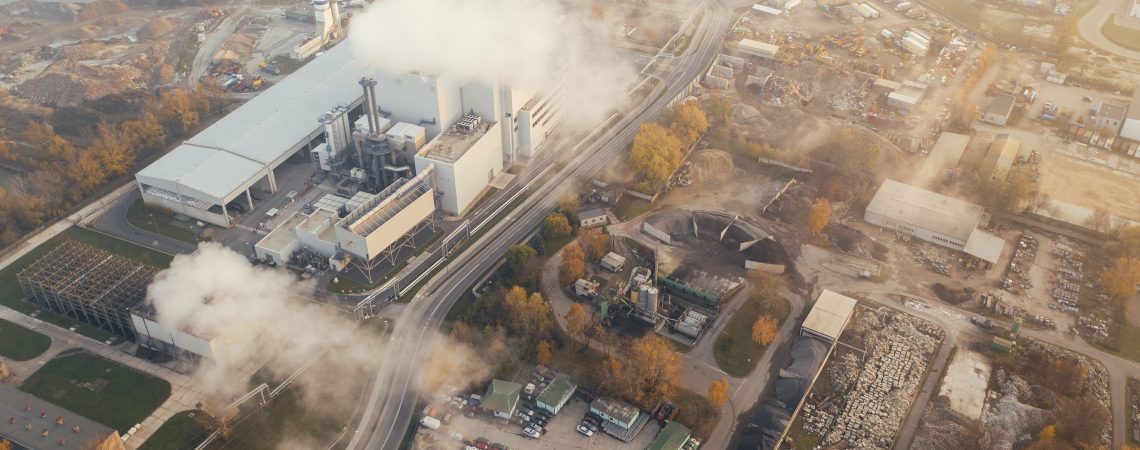
– by Rebecca Crane
I recently arrived home from a teaching trip to Lithuania and Germany. The connections were rich. The newly emerging mindfulness-based teaching community in Lithuania are eager to learn, warm in their welcome and a delight to spend time with. Senior teaching colleagues in Germany were keen to look collectively at how they could strengthen integrity in mindfulness-based practice in Germany through a coordinated implementation of the MBI:TAC to support reflective practice and assessment.
So in multiple ways it was a worthwhile trip. However, I also connected with my increasing sense of dissonance at the multiple flights that these trips often involve. This awareness has been present for several years, but the recent news about the fragile state of our planet’s biodiversity and climate breakdown is heart breaking. The urgency of the situation has landed for me in a deeper way. I feel moved to write and share about this…I feel hungry for connection and conversation around these challenges and dilemmas.
There are some justifications and counter arguments, such as: it is far better for one teacher to fly than for multiple students/trainees; the net good that the work of mindfulness does in the world maybe outweighs the damage that the carbon emissions cause; I offset my carbon through UN approved projects; and the flights would fly anyway, etc. However, it is increasingly clear that radical action is needed on all levels, individual and collective. We don’t have time to tinker around the edges. I have an increasing sense that I have to join the painful process of changing my behaviours and habits, as many others have already done. My historical carbon debt is embarrassingly high, largely through flights for teaching trips.
Like many people, over the last years my family and I have taken action on the home front. We have insulated our old stone Welsh cottage as much as we can, have a beautiful array of solar panels, and are thoughtful about how we use energy in the house. We have transitioned to a plant-based diet, buy locally as far as is possible and grow some of our own. Our small garden is as filled with habitats for native wildlife as it can be – native flowers, bird boxes, a pond and insect habitats. We take obsessional pleasure in minimising the amount of rubbish that goes into landfill and shop with as little packaging as possible to keep our recycling containers as light as they can be. We are working on bringing our car mileage down. I am (re)discovering that as I engage in wholesome action in these small but significant ways, I feel much clearer and live with less of an accumulation of dissonance and difficulty. But there is no doubt that my flying habit is an outlier in all this…it adds to the world’s carbon debt, and closer to home leaves an uncomfortable legacy on my conscience.
One of the strengths of the mindfulness-based field is the interconnection between colleagues and centres internationally. There is a potent sense of working towards a shared vision of a world in which humans are in wiser relationship with themselves and the environment. These international collaborations have been built through personal connections during teaching trips and conferences. I do trust that there has been much benefit to the world from these connections.

However, I yearn to talk more with colleagues about actions we can take now, as a mindfulness community, to lessen the environmental impact of our work. Examples that are on my mind at the moment are looking at whether we should put more of our energies into engagements that are closer to our homes, and shift our international connections with each other more to video conferencing. It’s not the same as getting up close in person with each other, but it’s also remarkably effective and workable. Maybe it’s time to get creative about conferences – perhaps having a hub conference with satellites in regions around the world into which keynotes are streamed, and then within each region the local work of community building can take place. Maybe at times it is worth strategically flying in one experienced trainer to regions that are so early in their development that there is no local expertise. After face-to-face connections have been built with key colleagues in these regions, we can support them in their capacity building work, via online connections. Maybe it’s also time to see where train travel is feasible rather than plane.
I have an intention to move into a phase of greater discernment and scrutiny of the cost benefit balance of each flight I take. I will also look for alternatives. I have teaching trips in France and Germany scheduled – these can certainly involve train rather than plane travel going forward. I acknowledge that this is only a mild hardship. The felt experience for me of flying is not pleasant – it leaves me feeling a little nauseous and depleted for a few hours after, and more vulnerable to colds for a few days after. My family are all in the UK, which makes things simpler for me. Continental Europe is very accessible by train. I know that for others the challenges and complications are greater, and that sometimes there is simply no option other than to fly.
And finally, I feel a deep sense of gratitude to the Extinction Rebellion movement who took a stand on the streets of London over Easter, and particularly to those who have sacrificed their liberty and their criminal record to stand up for the Earth. It is unclear at this point whether there is time to reduce our carbon emissions to sustainable levels, or to preserve enough habitat space for wildlife. The scale of the changes that are needed and the complications of making them happen on a systemic level are daunting. Much of this is beyond my capacity to influence – but it feels important take action in the areas of my life over which I do have influence. It would be good to be able to say to our grandchildren that we took a stand and did what we could.
We do not inherit the land from our ancestors, we borrow it from our children.
(Native American proverb)
Rebecca Crane is a Trustee for the Mindfulness Network and the Director of the Centre for Mindfulness Research and Practice at Bangor University.






7 comments on “Carbon Dilemmas (by Rebecca Crane)”
Eva Ruijgrok-Lupton
May 28, 2019 at 2:37 pmThank you so much for this piece Becca, such an important practice to look after our planet! And not straightforward to put our beliefs into practice. We have just cancelled a planned trip to the Mind and Life conference in Germany because of the flights it would involve, and decided that other than difficult to avoid flights for family and health reasons, we won’t be taking any more flights. A loss, and a relief. I very much welcome the intention to develop new ways of meeting, practicing, and learning together. It may only be drops in the ocean, but the ocean is made up of drops.
Eva x
Jiva Jane Masheder
May 28, 2019 at 4:00 pmAlso, thank you Becca, a very important piece. One of the debts I feel we owe Extinction Rebellion is to get the subject of climate change on the agenda – both the political but also the personal. It’s been such an uncomfortable subject for so long and often avoided for the sake of harmony… but the cost of this to the climate is huge. I wonder if we as a mindfulness community can take a stand on this; so much of the silence is related to thinking ‘well everyone else is flying, why shouldn’t I?’. You’ve probably read about the Swedish concept of ‘flight shame’; I wonder if the idea could spread here, and I think this will only happen when more people stand up and talk about the changes they’re making and the sacrifices they’re making, as you have in this important piece.
It’s a complex area of course. But the climate won’t wait and ye canna change the laws of physics.
Clare Donegan
May 30, 2019 at 8:21 amGreat and timely piece, thank you. Regarding your point of using video conferencing instead of flying. My previous work involved creating dance performances remotely using video conferencing or telepresence as it is known in the art world. Choreography was created between youth dance companies in two or three remote locations across the globe over a period of time. This then resulted in several live performances. This work was relatively complex yet highly rewarding for all involved.
My point being if one can create great art using these tools then one can most definitely deliver great training also!
Karen Hall
May 31, 2019 at 10:54 amFor me, the choice not to drive or own a car and not to have children are 2 significant ways that I keep my carbon footprint small. I use public transport in my daily life; I buy my clothes mostly from 2nd hand shops or other charity outlets. I don’t but much that’s packaged in plastic. I suppose that, if your work has led to a lot of travel around the world by air, then this is a genuine concern. Or if your holidays have involved lots of mini-breaks or trips abroad by air, then yes, the amount of flights you take can be where you reduce your footprint. I look around and I see a lot of my network taking these actions, in big or small ways, in their lives for decades. Equally, nothing can compare to physically being in a room, in the presence of Jon Kabat Zinn or the Dalai Lama or interacting in close proximity to a revered teacher, so I would encourage discernment here. Some people who travel a lot, do great good – they educate, lead and inspire people who can’t see them online or watch them on Netflix. Perhaps they off-set their carbon footprint by bringing climate & the environment right into the centre of the conversation – contradictory perhaps, but mind opening for the people in the conversation.
Singhashri
May 31, 2019 at 11:05 amThanks for sharing your thoughts and feelings on this important topic, Becca. Your process mirrors mine and I would welcome dialogue within the mindfulness field about what we can collectively do to address the climate and ecological crisis.
Kathy Ward
July 22, 2019 at 10:23 amHi Rebecca,
thanks for sharing, this is a thought-provoking topic that I think we need to seriously consider on a personal level, and also as teachers. I teach the 8-week MBSR course live online with great success and am looking at other options.
Yes, it is great to be in the same room as the worlds leading teachers, but if we are to safeguard the world for future generations, then change needs to happen, even if it’s uncomfortable.
I would love to see Bangor providing more live online CPD courses, I think it is the way forward if developed carefully, zoom rooms also make breakout sessions easy, and as well as the carbon wins, it lowers the costs of training making it more affordable and accessible.
It would also be wonderful if there was an option to attend conferences live online too, giving people the option to attend live or online is a step in the right direction.
Kind regards
Kathy
Ingrid den van den Hout
July 22, 2019 at 11:27 amImportant Becca, that you have sent out this wake-up call about our carbon footprint excess caused by flying.
As internationally working teacher trainer I do have to make choices about use of flights several times a year. Living on the continent, this enables me to use the international train connections most of the times. And I have to acknowledge that sometimes it’s too complicated in terms of planning or reaching the destination, too time-consuming or tiring to use public transport and then will make the choice to fly.
I feel it’s important to take responsibility but not get into a guilt trip. I try to make clear choices to the best of my ability and stay present to the felt sense of the effects of flying ánd of using other transport means.
For me it’s supportive to include the experience of travelling and other ways of producing carbon footprint into my spiritual path: I do meet my cravings, identifications, blockings etc. I certainly like the IDEAS of reaching a destiny in as little time as possible, sparing my energy for the upcoming teaching days by flying or the ‘status’ of a world wise woman expressed by flying around Europe.
I also feel that, as a mindfulness community, we can look for possibilities in the more activist domain.
Among our trainees and teachers, I notice that more people are inspired by integrating mindfulness with ecological awareness. Maybe this generation of teachers can support the mindfulness community to develop ways of raising awareness, support behavior change and have input into the public and political discussions.